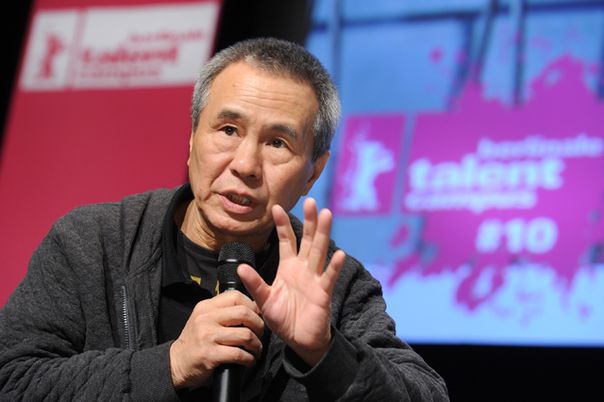Cinema Equals Respect Toward Life
Taiwanese director Hou Hsiao-Hsien is "In the Limelight" at the Berlinale Talent Campus.

Hou Hsiao-Hsien
For more than three decades, Hou Hsiao-Hsien’s films have been flooding our vision with images, captured and fractured, that come mostly from his experience of Taiwan as a country and a cultural community. At the Berlinale Talent Campus “In the Limelight” event, Hou shared his thoughts on themes that appear throughout his films.
Hou showed his short THE ELECTRIC PRINCESS HOUSE, which is a part of the omnibus TO EACH HIS OWN CINEMA, a project commissioned for the 60th anniversary of the Cannes Film Festival. Consisting of only three shots, the film starts carefully, first showing the front yard of an old movie theater in 60s Taipei, where people come not only to watch movies, but also to have contact with other people, talking, trading, buying and selling things. Hou continues the film with a scene depicting the nearly ruined interior of the same movie theater, showing excerpts from Robert Bresson’s MOUCHETTE, badly projected so they’re scratchy and diffuse. “I open that short with all my respect towards people, and end it with proof of how I admire sadness in simple depictions”, said Hou as he started his master class.
Hou explained that his use of grand staging, framed with carefully crafted camera movement, is his way of showing respect toward his life and every person in it. There is always the risk that people may find his approach boring and hard to follow, but it allows him to observe people’s common attitudes and behavior.
Hou uses minimalistic scenes, capturing a small spot that is somehow part of a bigger thing that’s going on. Take, for example, his newest short LA BELLE ÉPOQUE, which is screening this year in the Berlinale Panorama Special as a part of the Omnibus 10+10: First, a mother shows her old jewelry to her daughter; we then see a scene in black-and-white of the mother’s travels to mainland China. Taiwanese people were forbidden to travel to the mainland due to the tense political climate at that time, but the mother somehow visited, and bought jewelry there. This jewelry is not merely a family heirloom, but also a citation of history. Hou explains that he doesn’t want to end the story without touching on its greater surroundings.
Hou also shared his views on how technological progress in filmmaking shapes his perspective. Now is the time, he said, when filmmakers have to deal with the digitalization of everything and use it as a means to tell stories. “Don’t worry too much about technical problems. All you need to do is just go out there and shoot, space or people. Keep the frames that you like, delete the rest. That is how you pay respect toward life”.


301 Moved Permanently